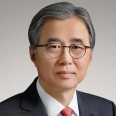*This is an opinion expressed in the Chosun Ilbo Op-ed on March 15, 2022.
Watching the current Ukraine crisis, many people worry that Taiwan or South Korea might be next. At the January 2021 Party Congress, Chairman Kim Jong Un instructed his officials to develop a “nuclear preemptive and retaliatory strike capability” to hit targets with a range of more than 15,000 kilometers and this January he ordered a review of North Korea’s 2018 moratorium on long-range missile launches and nuclear tests. From the beginning of 2022 to now, North Korea has conducted nine missile tests to date. South Korea and the US military authorities said that the purpose of two recent tests was to evaluate new Intercontinental Ballistic Missile (ICBM) before conducting a test at full range in the future.
Since Kim Jong Un believes that if he can threaten to attack Guam, Hawaii, and even the continental United States, then the United States will accept his demand to withdraw its troops from South Korea, North Korea seems to be making an all-out effort to develop ICBM. In order for North Korea to complete its development of ICBM, it must acquire the technology for its missiles to withstand the enormous heat of atmospheric re-entry. But that is not a major hurdle. In a February 2022 interview with Voice of America (VOA), Dr. Jeffrey Lewis, an expert on North Korea’s missile program at the Middlebury Institute of International Studies, said that North Korea has already completed two ICBM designs in 2017 and that ICBM may already be deployed at some bases.
In response to North Korea’s missile tests, the United States took the rare step of announcing the port call in Guam of the USS Nevada, a nuclear-powered ballistic missile submarine, one of the crown jewels in the U.S. Navy. The move was a break from the U.S. Navy’s practice of keeping secret the area of operations of its submarine fleet. The USS Nevada can carry a total of 20 missiles and 100 nuclear warheads and announcing its visit sent a strong warning to North Korea. Tom Shugart, a researcher at the Center for a New American Security (CNAS) and former U.S. Navy submarine captain, said, “It sends a message we can park 100-odd nuclear warheads on your doorstep and you won’t even know or be able to do much about it.”
How will North Korea respond to this U.S. warning? Some people in South Korean society think Kim Jong Un is “reasonable” in his own way, but is that so? Is it “reasonable” to develop weapons of mass destruction, publicly executing his uncle by anti-aircraft guns, poisoning his half-brother to death who had fled abroad, and making most of his people to suffer from cold and famine? Kim Jong Un is said to have more than 10,000 loyal elites and more than 1 million enthusiastic supporters who cooperate in maintaining the system. It is possible that Kim Jong Un could make a dangerous choice from being overconfident with such political support. Kim Jong Un sees the very existence of a free and prosperous South Korea as a political threat to the maintenance of three-generation hereditary system, and set eliminating this threat as top priority. In order for North Korea to reunify the Korean Peninsula under red flag, the U.S. Forces in Korea, the biggest obstacle, must be withdrawn, and if this is successful, Kim Jong Un may think his regime can be put on a solid base.
In order to solve the North Korean nuclear problem, Kim Jong Un must wake up from his delusion, and that is what South Korea and the United States should do. The problem is that there are those in Washington like Doug Bandow of the Cato Institute, who argue for withdrawal of the U.S. security commitment to South Korea to avoid exposing the U.S. mainland to North Korea’s nuclear threat. President Trump said of Kim Jong Un, “we fell in love,” and reportedly told his staff that he would withdraw U.S. troops from South Korea if he was re-elected, which is concerning.
What should South Korea do under these circumstances? We should make North Korea realize that having nuclear weapons and ICBMs will hasten the regime’s downfall rather than strengthening its one-man dictatorship. If Russia demanded that the United States withdraw its troops stationed in NATO member countries such as Germany, Poland, and Bulgaria because they were a threat and threatened that if the U.S. refused then it would attack U.S. mainland with ICBMs, the United States would never yield to such a demand. In the same vein, even if Kim Jong Un threatens the United States with ICBMs, the U.S. will not abandon South Korea.
A new South Korean government to be launched soon is expected to strengthen the ROK-US alliance. Over the past several years, the ROK-U.S. alliance has faced challenges due to the illusion about totalitarian states which cloak themselves in the language of ‘people’s democracy.’ ‘People’s democracy’ and ‘liberal democracy’ both use the term ‘democracy’, but ‘people’s democracy’ has no freedom while ‘liberal democracy’ does. Alliance can be sustained when allies share the values of freedom and human rights beyond pursuit of interests.
* The view expressed herein does not necessarily reflect the views of the Asan Institute for Policy Studies.

 Facebook
Facebook Twitter
Twitter